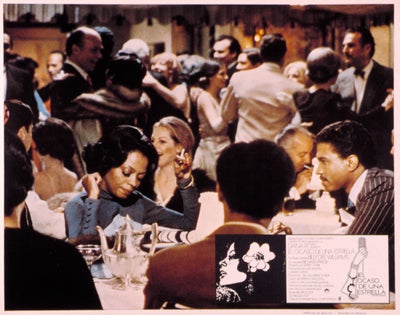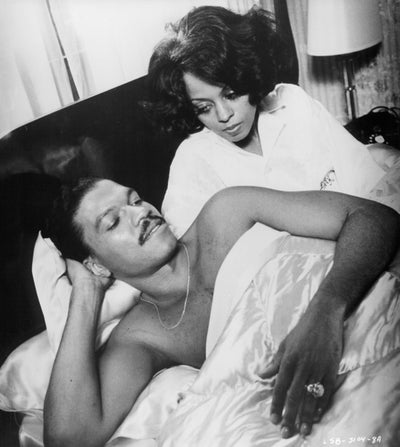
[ad_1]
Throughout the course of the 20th century, the public has long been enamored with the life and legacy of Billie Holiday. Her vocal delivery and stage presence brought this Baltimore native to the heights of superstardom, but it was Holiday’s inner turmoil that would make her story so intriguing to future generations. In 1956 she would publish her infamously transparent autobiography Lady Sings The Blues. Sixteen years later, Berry Gordy’s big screen adaptation of the same name would further highlight the tragic – but sometimes beautiful – journey of the woman the world reverently knew as “Lady Day.”
Released on October 12, 1972, Lady Sings The Blues was not an entirely accurate portrayal of this talented artist; but it also wasn’t its goal to do so. The objective was to create a film that centered around a woman with a unique, God-given ability, but struggled with many social, societal, and personal issues that in turn evoked compassion from a wide range of audiences across the country. Starring the legendary Diana Ross in her feature film debut, the project was thought to be a risk due to her lack of experience as an actress, as well as because of the stark contrasts between her look and sound compared to Holiday. However, instead of attempting to copy the iconic jazz singer’s demeanor, Ross decided to tackle the role in her own voice, which resulted in a near flawless, widely-heralded performance.

Before the movie, there was the book; but before the book was the album the started it all. Her seminal release, Lady Sings The Blues, captured Holiday at her best – and her worst. Sonically, songs such as “Strange Fruit,” was a beautiful recording, but had a disheartening message within it, which was symbolic of the life and career of Holiday herself. Sidney J. Furie’s film also captured that same dynamic, aided by unforgettable outings from cast members such as Billy Dee Williams, and Richard Pryor as Piano Man.
In the film, Holiday’s cyclical journey of rags to riches is shown through the eyes of Suzanne de Passe, Chris Clark, and Terence MCloy. The singer’s heavily documented battles with self-acceptance, drug abuse, and success, made each moment of this movie more riveting than the last. In addition to this, John Alonzo’s cinematography fully captured the atmosphere of New York City during the 1940s, which was cemented in classic moments such as Williams’ staircase scene. The story told in Lady Sings The Blues resonated with viewers and critics alike. During awards season, the film earned five Oscar nominations (including Best Actress for Ross), along with three nods each at the NAACP Image Awards and the Golden Globes, respectively.

The impact of this classic reached far beyond the years surrounding the 1970s. After the release of Motown’s critically acclaimed biopic, Holiday’s life was chronicled in film, television and stage. In 1986, Lady Day at Emerson’s Bar and Grill premiered at the Alliance Theatre in Atlanta, and has been revived several times since, most notably in 2014, starring Audra McDonald in her Tony Award-winning portrayal of the titular character. The play birthed an HBO broadcast, followed by a showstopping performance from Andra Day in The United States v. Billie Holiday in 2021. Day was nominated for the Academy Award for Best Actress, and ultimately won a Golden Globe for Best Performance by an Actress in a Motion Picture – Drama at its 78th annual ceremony.
50 years after its release, Lady Sings the Blues still remains a representation of a powerful moment in time. Ross gave a once-in-a-lifetime performance, and Gordy was able to showcase Black men in and women in a manner that exuded elegance and opulence, instead of poverty. It was also an amazing story about the power of love, and the tragic, but oftentimes triumphant, life of Billie Holiday.
[ad_2]
Source link







